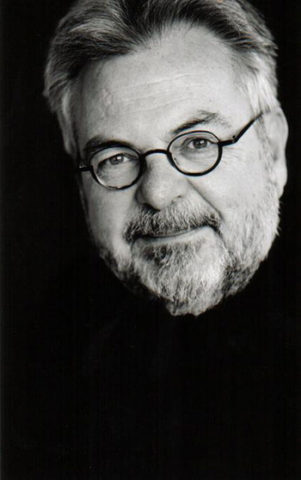
June 2, 2002.
Born in Montreal’s East End (in 1942), Michel Tremblay must be the most prolific writer in all of Canada, not just Québec: twenty plays, eleven novels, two short story collections, seven film scripts, and three musical comedies.
His 1965 play Les Belles-Soeurs introduced Qubec vernacular speech (joual) to stages throughout the francophone world, and his work has been translated into 25 languages.
I first heard of him in the mid-1970s when a translation of his play Hosanna was a hit in Toronto. After I left Toronto in the late-1970s, I heard nothing of him until San Francisco’s American Conservatory Theater substituted For the Pleasure of Seeing Her Again as a vehicle for Olympia Dukakis for Maxim Gorki’s The Mother.
As superb as Dukakis is, this is a play is mostly one that can be read with little loss. It is a succession of arias by “Nana,” a reincarnation of Tremblay’s mother, who died before his work became famous even in Montreal. The narrator gay son frames the play and introduces scenes from when he was 10,13, 16, 18, and 20 and reacts to her lengthy speeches. His own sort of anti-aria is a prologue about the many things the audience will not see in this particular play. It is mildly amusing, and its inclusion makes the male part somewhat more substantial. But it delays more than introduces the play on stage and should, in my opinion, be confined to the page.
The first scene, in which Nana makes a glacier out of an icicle (one thrown under the wheels of a streetcar) also goes on too long on stage but speeds by more quickly when read.
It is difficult to maintain the knowledge that Tremblay grew up in a household of twelve, though he and his mother at least mention siblings. It seems that mother and son spend most of their time together, discussing novels, television soap opera, movies, and even stagecraft “magic” (the very theatrical ending includes granting a wish of hers expressed earlier).
My favorite parts are the lurid embroidery of Nana’s despised sister-in-law’s death and the son’s managing to communicate that being served last he gets the least cooked beef roast. The final scenes, when the mother is dying, are poignant. Tremblay’s appreciation for over-dramatic women reminds me of Almodovar films, though Tremblay was writing such parts before Almodovar began. In homage to his mother (and perhaps exaggerating her exaggerating?), he has written a juicy part (which Olympia Dukakis plays to the hilt, incidentally).
Tremblay has opined that his mother would not like the play, though she would like the fact that her son wanted to create a play-length homage to her. With only two characters, little in the way of set and costume requirements, For the Pleasure of Seeing Her Again is a vehicle that will no doubt be seized by actresses of a certain age (who have sufficient charisma and the ability to remember a torrent of lines!). It is also an entertaining read and loses little in being read instead of watched.
Marco Barricelli, and the ACT staging of the finale, with Olympia Dukakis ascending with wings, make watching the play rewarding, though what has been turned into the first act is overlong.
For the Pleasure of Seeing Her Again ran May 12–June 9, 2002, at the American Conservatory Theatre’s Geary Theatre. Find the Playbill review here.
published on AssociatedContent, 2 June 2002
©2002, 2016, Stephen O. Murray

